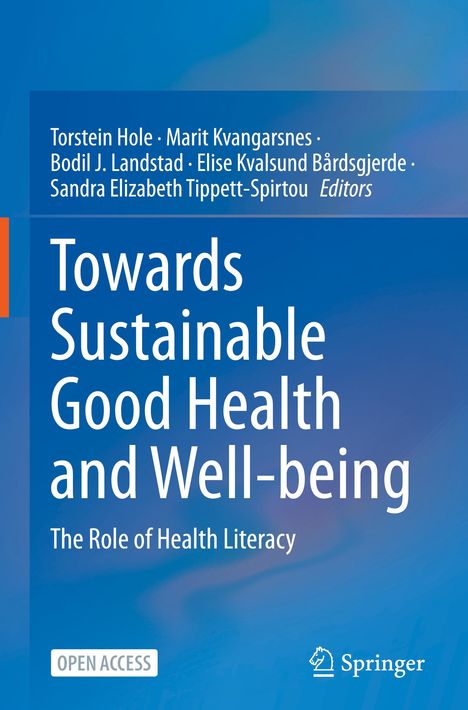Towards Sustainable Good Health and Well-being, Gebunden
Towards Sustainable Good Health and Well-being
- The Role of Health Literacy
(soweit verfügbar beim Lieferanten)
- Herausgeber:
- Torstein Hole, Marit Kvangarsnes, Sandra Elizabeth Tippett-Spirtou, Elise Kvalsund Bårdsgjerde, Bodil J. Landstad
- Verlag:
- Springer Nature Switzerland, 09/2024
- Einband:
- Gebunden, HC runder Rücken kaschiert
- Sprache:
- Englisch
- ISBN-13:
- 9783031618093
- Artikelnummer:
- 11974144
- Umfang:
- 236 Seiten
- Gewicht:
- 518 g
- Maße:
- 241 x 160 mm
- Stärke:
- 19 mm
- Erscheinungstermin:
- 21.9.2024
- Hinweis
-
Achtung: Artikel ist nicht in deutscher Sprache!
Klappentext
The purpose of this open access book is threefold. The first is to shed light on patient participation and health literacy for Good Health and Well-being, which is one of the UN's Sustainable Development Goals. Health literacy is considered a prerequisite for patients to be able to participate in shared decisions on their own treatment (WHO, 1998). Health literacy has received increased international attention: the concept is linked to person-centred health services, sustainable resource utilization, health-promoting and preventive health work, treatment of chronic diseases and social inequality (WHO, 2016). The second purpose is to provide health professionals and students with educational models for building health literacy for patients and relatives. This purpose is linked to Quality Education, one of the UN's sustainability goals. The third purpose is to present critical perspectives on the demand for sustainability in healthcare services. Both ethical dilemmas and philosophical reflections on patient participation, health literacy and sustainability are presented.
The Norwegian definition of health literacy is as follows: ¿Health competence is a person's ability to understand, assess and apply health information to be able to take knowledge-based decisions related to one's own health. This applies to both decisions related to lifestyle choices, disease prevention measures, self-management of disease and use of the health and care service¿ (Helsedireektoratet, 2020). The sustainability goal is clearly outlined in this definition, although the organisational perspective on health literacy is lacking. Patient participation leads to improved patient satisfaction and safety (Castro, Van Regenmortel, Vanhaecht, Sermeus, & Van Hecke, 2016; Collins, Britten, Ruusuvuori, & Thompson, 2007; Vahdat, Hamzehgardeshi, Hessam, & Hamzehgardeshi, 2014), efficient co-operation between patients and healthcare professionals, and enhanced management ofthe disease (Collins et al., 2007; Vahdat et al., 2014). Health literacy as well as patient participation are important aspects for sustainable development and good and effective healthcare services in the future.


